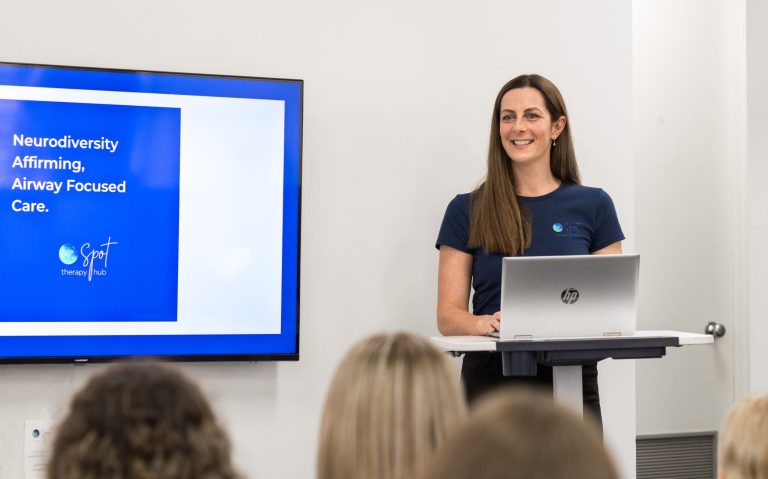









We offer Home and School visits in the Eastern Suburbs, Botany Bay, Inner West & Hills District. LEARN MORE
Families throughout Australia are supported through our innovative Spot Telehealth service. LEARN MORE
Spot Therapy Hub is a well-established practice that has been providing specialist occupational and speech therapy services across our beautiful clinics, in people’s homes, in schools and via telehealth for the past 20 years. We endeavour to support a diverse range of clients, from infants, preschoolers and school aged children, through to adolescents and adults. The team at Spot believe everyone should be empowered to achieve their goals, experience inclusion, and love their life!
ABOUT US
Our Experience, depth of Expertise, and Commitment to Evidence-based Practice.
Our Neurodiversity Affirming, Strengths Based approach leans away from a medical model that pathologizes Neurodivergence.
Our Constant Belief that high quality therapy should be accessible for all, which lead to Spot becoming pioneers in telehealth treatment alternatives.
Our Passion for Supporting Neurodivergent people throughout the lifespan, including autistic and ADHDers.
Our Dedication to Professional Development, Growth and Innovation means that we can bring a range of perspectives when working collaboratively with you.
Our Unique culture of passionate and energetic employees, whose diversity guides fresh perspectives to therapy.
Our Experience, depth of Expertise, and Commitment to Evidence-based Practice.
Our Neurodiversity Affirming, Strengths Based approach leans away from a medical model that pathologizes Neurodivergence.
Our Constant Belief that high quality therapy should be accessible for all, which lead to Spot becoming pioneers in telehealth treatment alternatives.
Our Passion for Supporting Neurodivergent people throughout the lifespan, including autistic and ADHDers.
Our Dedication to Professional Development, Growth and Innovation means that we can bring a range of perspectives when working collaboratively with you.
Our Unique culture of passionate and energetic employees, whose diversity guides fresh perspectives to therapy.
Spot Therapy Hub, is a well-established practice that has been providing specialist therapy services across our beautiful clinics, in people's homes, in schools and via telehealth for over 20 years.
Which of Spot's 5 Clinics is best for you?

Level 1/111, Belmore Road, Randwick, 2031
Mon-Fri (8am-5.30pm)
Sat (8 am-3 pm)
Level 1/111, Belmore Road, Randwick, 2031
P: 02 9326 6000 E: spot.reception@gmail.com Get DirectionsMon-Fri (8am-5.30pm)
Sat (8 am-3 pm)
Mon-Fri (8 am-5.30pm)
Suite 101, Level 1, 35-45 Spring Street, Bondi Junction, NSW, 2022
P: 02 9326 6000 E: spot.reception@gmail.com Get DirectionsMon-Fri (8am-5.30pm)
203/10 Century Circuit, Norwest, NSW, 2153
P: 02 9326 6000 E: spot.reception@gmail.com Get DirectionsMon-Fri (7 am- 6 pm)